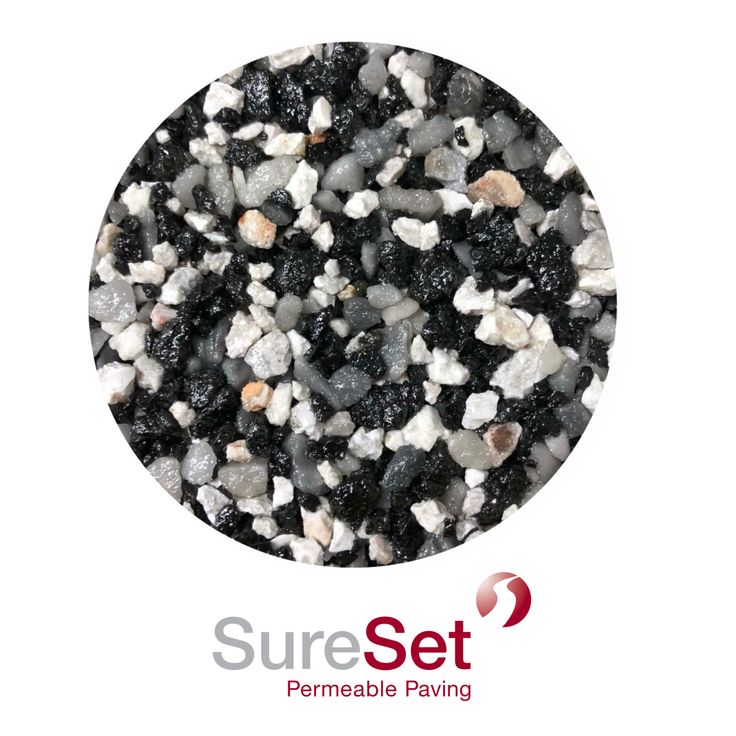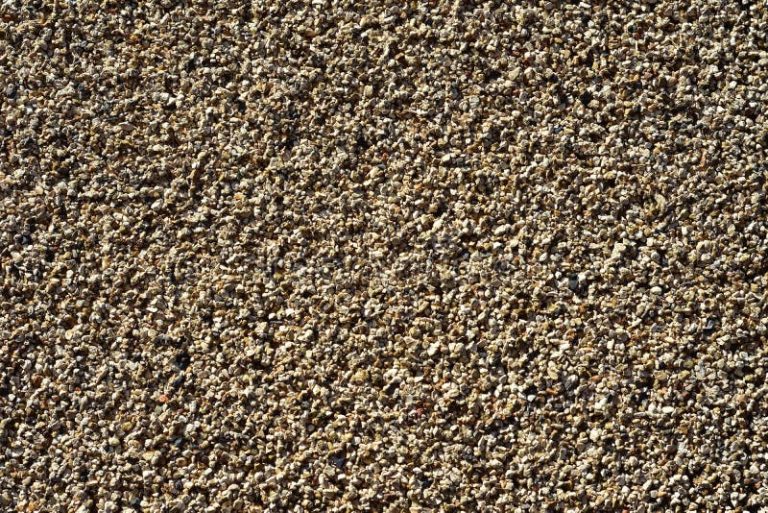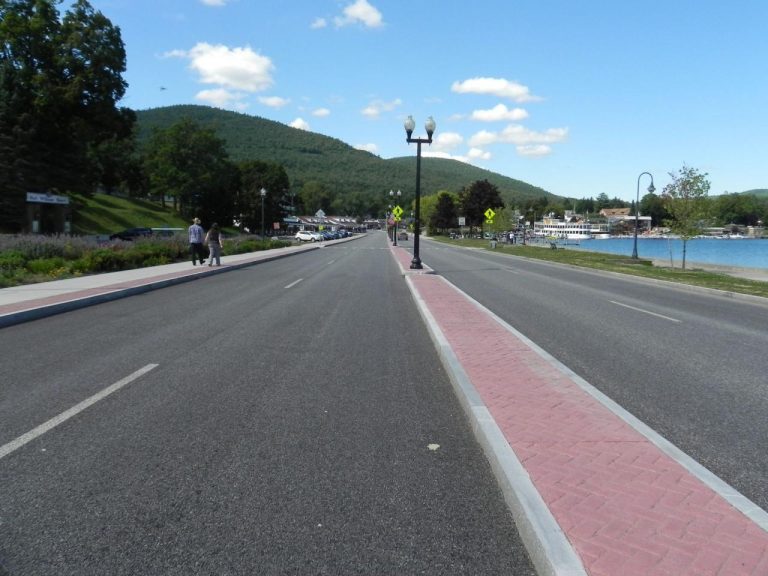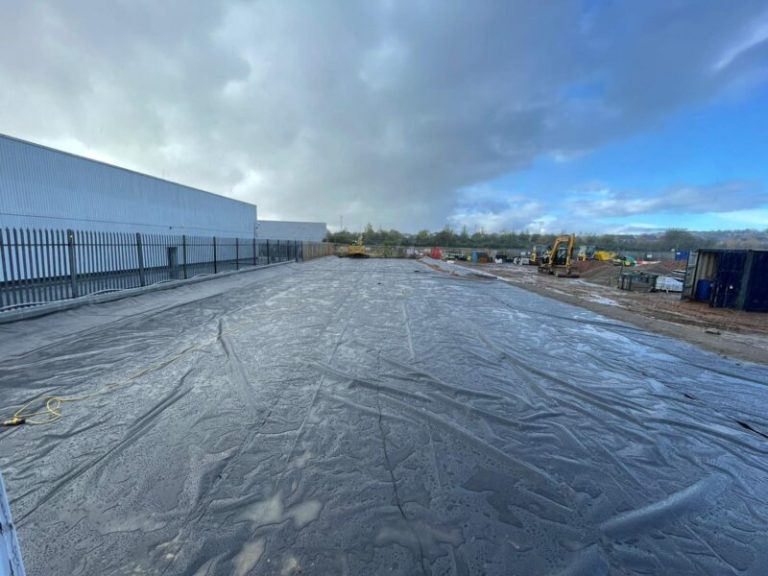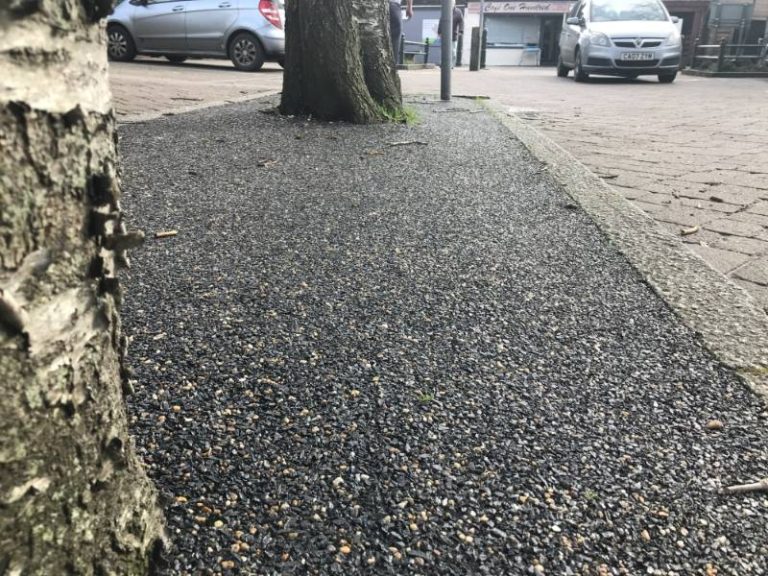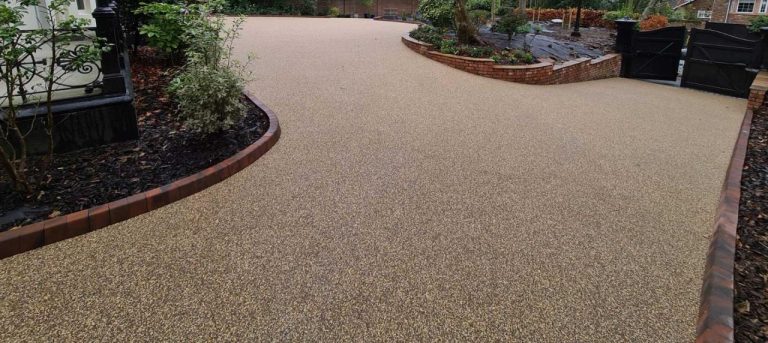Resin Driveway Porous A Sustainable Choice
Resin driveway porosity presents a compelling alternative to traditional paving. This innovative material offers unique advantages in terms of environmental impact and design flexibility. It’s more than just a driveway; it’s a sustainable solution that enhances your property while contributing to stormwater management.
Resin driveways, in general, are constructed using a variety of materials. Their design and manufacturing process differ from traditional asphalt or concrete. This guide delves into the specifics of porous resin driveways, highlighting their porosity levels and their benefits for the environment. A comparative analysis of different resin formulations, along with their pros, cons, and costs, will also be presented.
Introduction to Resin Driveways

Resin driveways are a modern alternative to traditional asphalt or concrete surfaces. They offer a range of aesthetic and functional benefits, including enhanced durability, customization options, and potentially better water drainage. This innovative approach to driveway construction uses a specialized polymer resin system, creating a resilient and visually appealing surface.
Resin driveways, unlike their traditional counterparts, feature a robust, composite structure. This is achieved by combining the resin with other materials, leading to a material with exceptional strength and long-lasting performance. The unique properties of resin allow for a wide range of design possibilities, from intricate patterns to solid color options.
Types of Resin for Driveways
Resin driveways utilize a variety of polymers, each with its own set of characteristics and performance properties. Common resin types include epoxy resins, polyurethane resins, and polyester resins. Epoxy resins are often preferred for their chemical resistance and durability, while polyurethane resins are known for their flexibility and resilience. Polyester resins offer a balance between cost-effectiveness and performance.
Comparison with Traditional Driveways
Resin driveways differ significantly from traditional asphalt or concrete driveways in terms of their composition, installation, and maintenance. Asphalt driveways, while cost-effective, can suffer from cracking and deterioration over time. Concrete driveways, known for their strength, can be susceptible to staining and require specialized sealing. Resin driveways, in contrast, are often more resistant to cracking, staining, and weather-related damage. This superior resilience often translates into a lower long-term maintenance cost.
Manufacturing Process of Resin Driveways
The manufacturing process of resin driveways typically involves several key steps. First, the chosen resin is mixed with aggregates, fillers, and pigments according to a specific formula. This mixture is then applied to the prepared sub-base using specialized equipment. The surface is then cured and finished, ensuring a smooth and durable surface. The final step often involves a protective sealant to enhance the longevity and appearance of the finished product.
Resin Driveway Options: A Comparative Analysis
This table Artikels the characteristics of various resin driveway options. Different choices are suited for different needs and budgets.
| Material | Pros | Cons | Cost |
|---|---|---|---|
| Epoxy Resin | High durability, chemical resistance, and low maintenance. | CaItcanebe ore expensive than other resins, potentially higher initial cost. | Medium to High |
| Polyurethane Resin | Flexibility, resilience, and excellent impact resistance. It can be used in various applications. | Can be more susceptible to certain chemicals compared to epoxy. | High |
| Polyester Resin | Cost-effective, good durability, and relatively easy to install. | It may not offer the same level of resistance to extreme weather conditions as epoxy or polyurethane. | Low to Medium |
Porosity in Resin Driveways
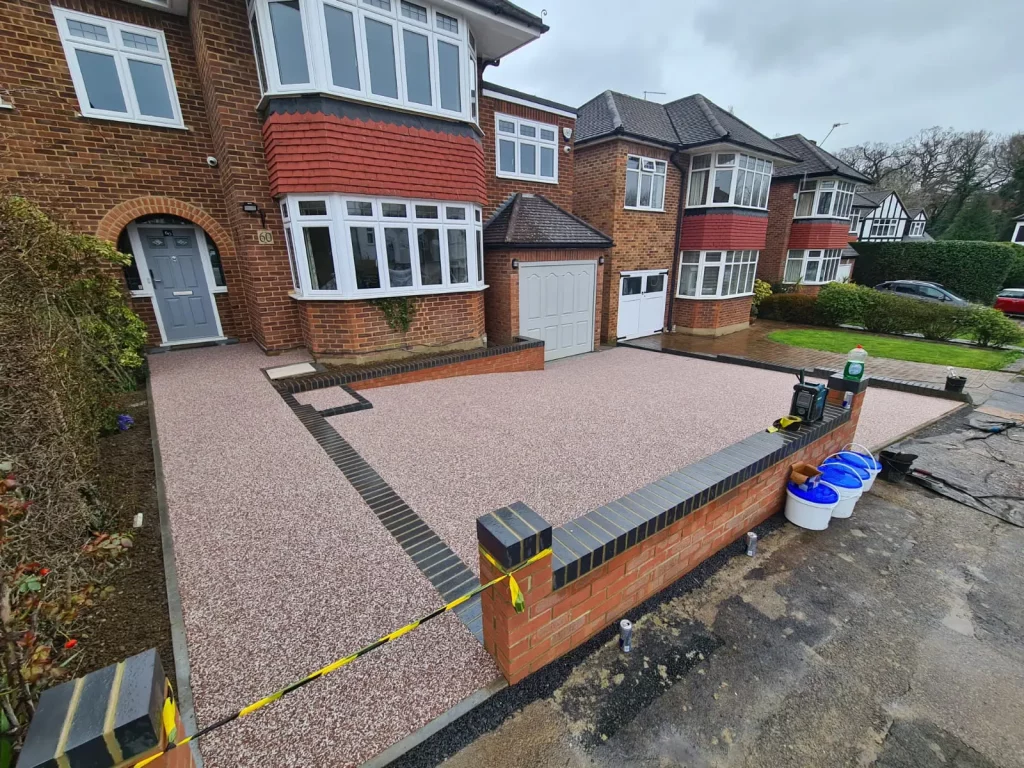
Resin driveways, while offering a durable and aesthetically pleasing surface, require careful consideration of their porosity. Understanding how porous a resin driveway is directly impacts its performance and longevity. Porosity, the presence of tiny holes or spaces within a material, significantly affects water absorption and drainage, crucial aspects for preventing damage and maintaining a functional driveway.
Effects of Porosity on Water Absorption and Drainage
Porosity dictates how readily a material absorbs water. Resin driveways with higher porosity will absorb more water, potentially leading to issues like pooling, which can compromise the integrity of the surface and the underlying subgrade. Conversely, lower porosity resins will allow water to drain more quickly, minimizing the risk of water damage and maintaining a dry, stable surface. Proper drainage is paramount to prevent water accumulation, reducing the risk of cracks, erosion, and uneven settling.
Factors Influencing Porosity in Resin Driveways
Several factors contribute to the porosity of resin driveways. The specific resin formulation plays a crucial role, with different resins exhibiting varying levels of porosity. The manufacturing process, including curing temperatures and pressure, can also influence the density and subsequent porosity. The addition of fillers or aggregates within the resin mix can alter the porosity levels, as can the overall thickness of the resin layer. Finally, the quality of the subgrade, the surface preparation, and the environmental conditions during curing all contribute to the final porosity.
Importance of Proper Drainage for Resin Driveways
Proper drainage is essential for the long-term health and functionality of resin driveways. Adequate drainage prevents water from accumulating, reducing the risk of surface cracking and deterioration. Poor drainage can lead to water pooling, potentially damaging the subgrade and creating an uneven surface. A well-designed drainage system, incorporating appropriate grading and surface contours, is essential for ensuring proper water flow away from the driveway.
Comparison of Resin Formulations Based on Porosity Levels
The porosity of resin formulations varies considerably, impacting their suitability for different applications. A comparative analysis is presented below. Different formulations are designed with different intended uses and thus different desired levels of porosity.
| Resin Formulation | Porosity Level (Estimated) | Suitability |
|---|---|---|
| High-Density Polymer Resin | Low | Excellent drainage, high durability, suitable for high-traffic areas |
| Modified Polymer Resin | Medium | Good drainage, moderate durability, suitable for moderate-traffic areas |
| Low-Density Polymer Resin | High | Potentially poor drainage, lower durability, not ideal for high-traffic or areas with heavy rainfall |
Note: Porosity levels are approximate and can vary depending on specific formulation and manufacturing processes.
Benefits of Porous Resin Driveways

Porous resin driveways offer a compelling alternative to traditional, non-porous paving materials, presenting a multitude of advantages. These innovative surfaces excel in their ability to integrate seamlessly with the surrounding environment while enhancing functionality and sustainability. Their unique properties make them a valuable addition to modern infrastructure, offering a superior solution for various needs.
Porous resin driveways are designed with superior performance characteristics that go beyond aesthetics. These systems combine the durability of resin with the critical benefit of porosity, offering significant advantages over conventional impervious surfaces. This combination allows for enhanced water absorption and drainage, making them a valuable tool for stormwater management and contributing to a more environmentally conscious approach to urban development.
Advantages Over Non-Porous Alternatives
Traditional, non-porous driveways often contribute to increased runoff during rainfall events, potentially leading to flooding and strain on drainage systems. Porous resin driveways, on the other hand, mitigate these issues by absorbing a significant portion of rainwater. This reduction in surface runoff leads to a more sustainable and environmentally friendly approach to urban infrastructure.
Environmental Benefits
Porous resin driveways play a vital role in mitigating the negative environmental impacts associated with traditional paving materials. By allowing water to infiltrate the ground, they reduce the strain on local drainage systems, lowering the risk of flooding and erosion. This, in turn, contributes to the overall health of the ecosystem by maintaining natural water cycles. Furthermore, the reduced reliance on impervious surfaces helps to preserve groundwater resources.
Stormwater Management
The porosity of resin driveways directly contributes to effective stormwater management. Rainwater, instead of accumulating on the surface, is absorbed by the material, allowing it to percolate into the ground. This process replenishes groundwater reserves, reduces surface runoff, and minimizes the risk of flooding. The controlled absorption of water also reduces the strain on local drainage infrastructure.
Aesthetic Qualities
Porous resin driveways offer a range of aesthetic possibilities, from sleek, modern designs to more natural, integrated looks. They can be customized to complement the surrounding landscaping, blending seamlessly with gardens and other outdoor spaces. The use of different colors and textures can further enhance their visual appeal, offering a wide range of design options.
Comparison of Porous and Non-Porous Resin Driveways
| Feature | Porous Resin Driveways | Non-Porous Resin Driveways |
|---|---|---|
| Water Absorption | High, significantly reducing runoff | Low, contributing to increased runoff |
| Stormwater Management | Effective, minimizing flooding and erosion | Ineffective, exacerbating flooding and erosion |
| Environmental Impact | Positive, promoting sustainable development | Negative, potentially damaging ecosystems |
| Aesthetics | Highly customizable, offering a range of design options | Limited aesthetic options, often appearing uniform |
| Maintenance | Generally low, requiring less frequent cleaning and repairs | Potentially higher, requiring regular cleaning and maintenance to prevent damage from debris |
Design Considerations for Porous Resin Driveways
Designing porous resin driveways requires careful consideration of various factors to ensure functionality, aesthetics, and long-term performance. These considerations extend beyond simply incorporating porous materials; they encompass the entire system’s design, from grading and drainage to material selection and landscaping integration. A well-designed porous resin driveway contributes to sustainable urban development by managing stormwater runoff and enhancing the overall environment.
Proper design principles are crucial for maximizing the effectiveness of a porous resin driveway. A thoughtfully planned system not only addresses immediate needs but also anticipates potential issues, leading to a durable and aesthetically pleasing surface that enhances the property’s value. This includes a thorough understanding of local regulations, site-specific conditions, and the desired lifespan of the driveway.
Grading and Drainage Systems
Effective grading and drainage are paramount for a functioning porous resin driveway. Proper grading directs rainwater away from the driveway, preventing water pooling and ensuring the porous material can effectively absorb and release water. This is achieved through a controlled slope, typically ranging from 1% to 3%, to ensure efficient water runoff. In areas with high rainfall or complex topography, more elaborate drainage systems might be necessary, such as French drains or swales. These systems are designed to divert excess water away from the driveway and into designated collection points. Understanding the local drainage patterns is crucial for ensuring that the system does not negatively impact surrounding properties.
Material Selection Criteria
Selecting materials with appropriate porosity is critical. The resin used in the driveway must exhibit sufficient porosity to allow water absorption while maintaining structural integrity and resistance to wear and tear. The porosity percentage should be carefully evaluated, balancing water absorption with strength. High-quality resins specifically designed for porous driveways will be more durable while maintaining the necessary permeability. Consideration must also be given to the specific characteristics of the region’s climate, such as expected freeze-thaw cycles, which could impact the resin’s performance.
Landscaping and Surrounding Infrastructure
Landscaping plays a crucial role in the overall design. The surrounding landscaping should complement the porous resin driveway, incorporating native vegetation and permeable landscaping elements. Integrating the driveway with existing infrastructure, such as sidewalks and retaining walls, must be carefully planned to ensure seamless transitions and maintain proper drainage. Furthermore, the design must accommodate potential future additions or changes to the surrounding environment. This holistic approach will enhance the long-term functionality and aesthetic appeal of the driveway.
Design Parameters Table, Resin driveway porous
| Parameter | Description | Importance |
|---|---|---|
| Slope | Gradient of the driveway surface. | Directs water flow away from the driveway. |
| Porosity of Resin | Percentage of void space in the resin. | Determines water absorption capacity and structural integrity. |
| Drainage System | Method for directing water away from the driveway. | Prevents water pooling and damage to the driveway. |
| Landscaping | Surrounding vegetation and features. | Complements the driveway and enhances its functionality. |
| Material Durability | Resistance to wear and tear. | Ensures long-term performance of the driveway. |
| Local Regulations | Building codes and environmental restrictions. | Ensures compliance and sustainability. |
Maintenance and Durability of Porous Resin Driveways
Porous resin driveways, while offering numerous advantages, require specific maintenance procedures to ensure longevity and optimal performance. Understanding these procedures and the potential long-term durability issues is crucial for homeowners considering this innovative paving solution. Proper maintenance significantly impacts the lifespan and aesthetic appeal of these driveways.
Maintaining the integrity of a porous resin driveway involves a combination of routine care and proactive measures to address potential issues. This proactive approach, coupled with an understanding of the unique characteristics of porous resin, is key to achieving a long-lasting and aesthetically pleasing surface.
Maintenance Procedures
Routine maintenance for porous resin driveways primarily focuses on preventing the accumulation of debris and contaminants. Regular sweeping or pressure washing is crucial for removing leaves, dirt, and other particles that can clog the pores and compromise the system’s drainage efficiency. The frequency of these procedures will depend on the local environment and usage patterns. In areas with high foot traffic or significant leaf fall, more frequent maintenance may be necessary.
Long-Term Durability
The long-term durability of porous resin driveways is contingent upon several factors, including material quality, installation techniques, and environmental conditions. High-quality materials and precise installation are crucial for ensuring a strong, stable base. Regular maintenance plays a vital role in mitigating the effects of weathering and wear, thereby extending the lifespan of the surface. Driveways in areas with extreme temperature fluctuations or heavy vehicle traffic might exhibit a slightly reduced lifespan compared to those in more moderate environments.
Addressing Cracking or Damage
Should cracking or damage occur, prompt attention is essential. The cause of the issue must be identified and addressed. Small cracks can often be repaired with specialized resin patching compounds, while larger fissures may necessitate a complete replacement of the affected section. Professional assessment and repair are recommended for more extensive damage to maintain the integrity and functionality of the driveway. Careful inspection after winter seasons, for example, can help identify potential damage early.
Comparison of Maintenance Requirements
| Feature | Porous Resin Driveway | Non-porous Resin Driveway |
|---|---|---|
| Initial Cost | Potentially higher due to material and installation complexities. | Generally lower due to simpler construction. |
| Maintenance Frequency | Requires regular sweeping/pressure washing to prevent clogging. | Requires less frequent cleaning. |
| Drainage | Excellent drainage properties due to porosity. | Limited drainage; water can pool. |
| Durability | High durability with proper maintenance. | High durability with proper maintenance. |
| Environmental Impact | Reduced runoff promotes water infiltration. | Increased runoff, potentially impacting local water systems. |
Potential Long-Term Structural Issues
While porous resin driveways generally exhibit excellent durability, potential structural issues can arise over time. Uneven settling of the sub-base, inadequate compaction of the substrate, or improper installation techniques can contribute to cracking, uneven surfaces, and ultimately, premature failure. Careful attention to the entire construction process, including sub-base preparation, is essential to minimize the risk of such issues. For example, driveways built on unstable or poorly prepared ground may be more susceptible to long-term settling and cracking.
Case Studies and Examples of Porous Resin Driveways
Real-world applications of porous resin driveways showcase their practical advantages and design versatility. These case studies highlight successful installations, diverse design approaches, and the enduring quality of these innovative surfaces. They offer valuable insights into material selection, installation techniques, and the long-term performance of porous resin driveways.
Successful Installation Examples
Numerous installations demonstrate the practical benefits of porous resin driveways. These projects often involve significant considerations for site-specific conditions and desired aesthetics. The integration of porous resin paving with surrounding landscapes is crucial for creating harmonious and functional spaces.
- Project A: Suburban Residential Driveway: This project in a suburban neighborhood focused on enhancing both pedestrian and vehicular access. The porous resin driveway, crafted from a blend of recycled materials and high-performance resins, seamlessly integrates with the existing landscaping. The surface exhibited excellent water absorption, effectively managing stormwater runoff. The project also incorporated a subtle, textured pattern, improving visual appeal while maintaining functionality.
- Project B: Commercial Parking Lot: This commercial parking lot project utilized a darker-toned porous resin material to create a durable and aesthetically pleasing surface. The project design incorporated specialized drainage systems to facilitate rapid water dispersal. This approach not only improved stormwater management but also reduced the risk of flooding and surface damage during heavy rainfall. The dark color was chosen to minimize the heat island effect.
- Project C: Urban Park Pathway: A unique application in an urban park involved the construction of a porous resin pathway. The design aimed to minimize surface runoff while improving pedestrian access and aesthetic appeal. The resin was formulated with a high-strength aggregate to resist the increased traffic and footfall associated with park use. The project demonstrated the viability of porous resin surfaces in high-traffic areas.
Design Approaches and Materials Used
Different projects often employ varying design approaches and materials. These choices are influenced by factors like budget, site conditions, and desired aesthetics. Innovative combinations of aggregates, resins, and pigments contribute to the unique character of each project.
- Material Combinations: Projects frequently utilize a blend of recycled materials, high-performance resins, and various aggregates. These combinations are optimized for specific applications, considering factors such as durability, permeability, and cost-effectiveness. For example, some projects might incorporate crushed granite or recycled glass into the resin mix.
- Color Palette: Porous resin driveways offer a wide range of color options, allowing for customization and visual integration with the surrounding environment. Projects may incorporate muted tones or vibrant colors to complement the overall aesthetic of the property.
- Drainage Systems: Effective drainage systems are often integrated into the design of porous resin driveways, especially in areas prone to heavy rainfall. This crucial element ensures proper water management and prevents surface water pooling.
Case Study Summary Table
The table below presents a concise overview of the case studies, highlighting key characteristics.
| Project | Location | Materials | Outcomes |
|---|---|---|---|
| Project A | Suburban Neighborhood | Recycled materials, high-performance resins, textured pattern | Excellent water absorption, seamless integration with landscaping, enhanced pedestrian/vehicular access |
| Project B | Commercial Area | Darker-toned porous resin, specialized drainage systems | Durable surface, improved stormwater management, reduced flooding risk |
| Project C | Urban Park | High-strength aggregate, porous resin, optimized for pedestrian traffic | Minimized surface runoff, enhanced pedestrian access, improved aesthetic appeal |
Detailed Description of Project A
Project A, a suburban residential driveway, showcases the integration of sustainable materials and enhanced aesthetics. The design incorporated a unique textured pattern into the porous resin, enhancing visual appeal while maintaining functionality. The blend of recycled materials and high-performance resins in the project exemplifies the use of sustainable practices in driveway construction. The successful integration of the driveway into the surrounding landscape is a key element of this case study.
“This project demonstrates the potential for porous resin driveways to seamlessly integrate with existing landscapes and enhance the overall appeal of residential properties.”
Future Trends in Porous Resin Driveways: Resin Driveway Porous
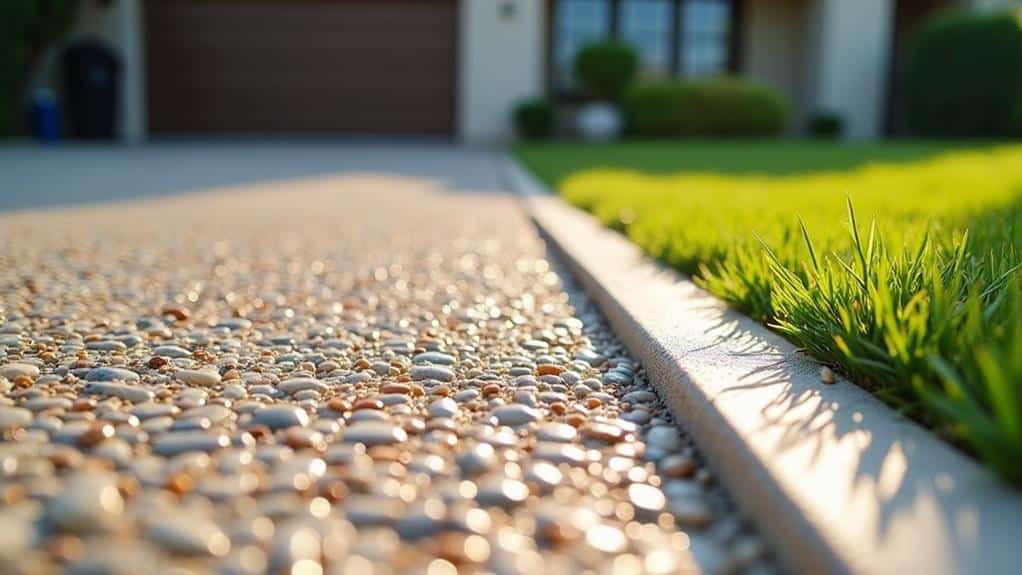
The field of porous resin driveways is rapidly evolving, driven by the growing need for sustainable and aesthetically pleasing infrastructure. Emerging technologies and innovations are poised to reshape the landscape of pavement design, promising improved performance and enhanced environmental benefits. This section explores potential future trends, including material advancements, design innovations, and anticipated adoption rates.
Emerging Technologies and Innovations
Current research focuses on developing resins with enhanced durability and resistance to environmental stressors. This includes incorporating advanced polymer blends, reinforcing agents, and specialized additives to improve the long-term performance of porous resin driveways. For instance, incorporating bio-based polymers could reduce the environmental impact of production while maintaining strength and longevity. Innovative manufacturing techniques are also being explored, such as 3D printing, which could enable more complex and customized designs.
Potential Future Developments and Applications
Future porous resin driveways may integrate smart features, such as embedded sensors for monitoring performance and detecting potential issues. This proactive approach allows for early intervention and minimizes costly repairs. Furthermore, integrating rainwater harvesting systems into the design of porous resin driveways could offer an additional benefit. This could lead to more sustainable water management practices, particularly in regions facing water scarcity.
Potential Materials and Design Trends
The development of new, environmentally friendly resin formulations is expected to continue. These formulations may incorporate recycled materials or bio-based components to reduce the environmental footprint of production. Furthermore, designs will likely incorporate increased complexity and customization to suit various aesthetic preferences and functional needs. For example, the integration of decorative elements, such as embedded lighting or textured surfaces, could enhance the visual appeal of the driveways.
Future Research Directions
Research in this area is crucial to ensure the long-term viability and success of porous resin driveways. Key areas of future research include investigating the impact of different resin formulations on long-term durability and performance under various environmental conditions. Moreover, the study of how to optimize the porosity of the resin while maintaining structural integrity will be important. Another key research area is evaluating the impact of different design elements on water infiltration and runoff rates. This can further refine the design process to create more sustainable and efficient drainage systems.
Closing Notes
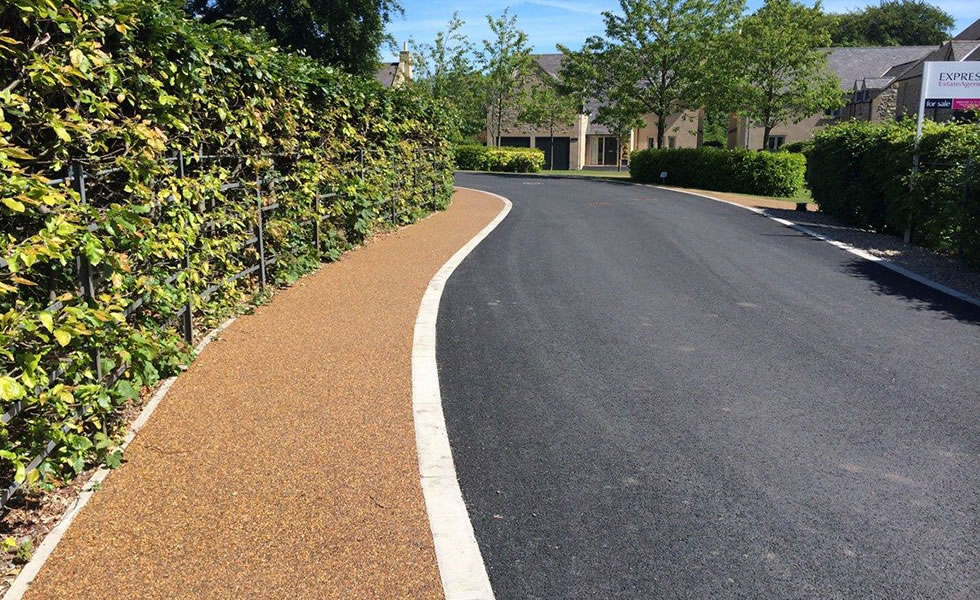
Source: co.uk
In conclusion, porous resin driveways represent a promising future for sustainable and aesthetically pleasing paving solutions. Their benefits extend beyond environmental considerations, encompassing design versatility and enhanced property value. Thorough planning, proper maintenance, and a comprehensive understanding of design principles are crucial for a successful implementation. Further research and development in this area are expected to drive even more innovative applications in the future.
